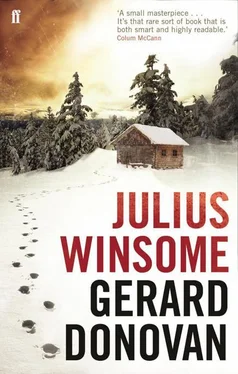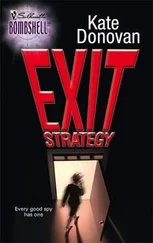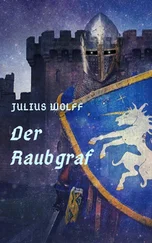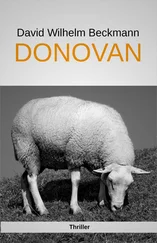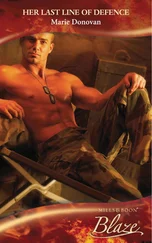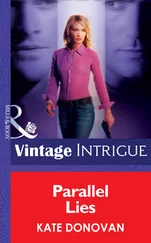I bagged a big buck and had him strapped to the back in under fifteen minutes.
Yeah? I took this one black bear that came at me and moved off again like it knew. I opened up with the Winchester, dropped it like a sack.
Some of the locals, they’re harvesting a lot of bears up there on the border.
Then their voices dropped and they leaned together. I had to turn my head to hear the whispering above the clank of dishes:
No, don’t know what’s happened either. No sign of him these past three days. And then the other two. I tell you this, something’s wrong. Men don’t go off missing in groups without sight nor sound.
One of them lit his cigarette and saw me staring at him and I looked up to the television where on the screen a rifle was superimposed over a red question mark.
And now, reporting from Fort Kent: three missing hunters and two families in a desperate limbo. What has happened in the North Woods? Where have these men disappeared to?
Three photographs popped up on the screen. Yes, there they were, and up last the bow hunter, the skinny one. The reporter said that two of them were family men from Frenchville, whom I knew to be the two recent friends now lying in the truck in the woods, and the first in the shooting order lived in Fort Kent. Two had children but not the skinny, who was not married. I felt my heart drop at the children item. The little fellows, no father now; there was no need for that, and why in heaven’s name would a man need to go hunting when he had a child at home? And why go hunting and near my cabin? Why shoot a dog or associate with a dog shooter? That’s what happens when you do that kind of thing, isn’t it just. Harvest, that hunting term, it sounded more like what you do with crops and didn’t seem all that bad a thing to do, which is what I was doing anyway. Get them where they don’t expect, isn’t that what hunting is all about, the art of the hunt? You hide and let them have it if they have it coming.
You should all have been more careful. I said to the crossbow man, You came to shoot in the woods, but the woods shot back.
I wanted to feel sympathy, but sympathy was driving ahead of me and I’d be behind it in a few minutes, as soon as I finished the sandwich cradled in my hands, which were shaking. My hands never shook, even when I was nervous. A state trooper car pulled up outside as I munched.
Two troopers got out and came in and went up to the counter, their revolvers shooting a stripe down the side of the trousers, and they opened not a newspaper but a map, the county it looked like, with some circles drawn. They didn’t have to ask, the waitress put coffee in front of them, and they looked up as the television news item on the missing hunters continued.
I went to the bathroom and saw as I passed them a circle on the map around McLean Mountain and the Back Settlement south of St. Francis, on the river, a few hundred yards from the border. A fifty-square mile circle at first glance, and three arrows coming at it from different directions. They were triangulating.
Fair enough, that was to be expected. But as I washed my hands in the soap and cold water I realized I would have to be more careful if there were ever any confrontation again, mighty careful, otherwise those arrows might take a better aim and finally point to the cabin and in the window from every direction. But then my present journey might help aim them the wrong way. I paid my check and said good morning to the officers, who smiled a greeting back.
I got in the truck and drove away with a fresh cup of coffee to go. Hot tea was good for a gentle, steady, reliable life, the broad arc of the afternoon, that sort of thing, and I brought some for later, but for ten minutes that followed, I needed the coffee to surge my blood awake and keep me alert for locations. A car with skis on the roof rack passed me, going in the opposite direction. People dressed in yellow coats and hats, even in the car. They were that eager to hit the slopes, and it was cold, getting colder. I wondered why I chose St. Agatha instead of the woods around my house, where Hobbes was shot and my reasons for taking action were more defensible: I knew it had nothing to do with Claire being from there, and anyway, she lived in Fort Kent now it seemed. I was not driving into St. Agatha with a rifle looking for Claire.
I ARRIVED IN ST. AGATHA AT ONE-THIRTY IN THE afternoon and made a left for the east side of the lake south of town, the wilder part, and parked off the road, and with the rifle slung and the book under my coat and the thermos in my right pocket I walked to the nearest tree with a tree stand on it, one that bordered a field and offered an excellent field of fire. The woods were sparse here, more potato fields than trees, but bird and deer hunters would no doubt be active here, and possibly that fellow who was commentating on the poster.
Wouldn’t be long now, not on a day like this, with the blue breaking out all over the sky and deer tracks peppering the woods. I leaned the rifle on the railing and opened the book of sonnets and poured a mouthful of Earl Grey onto my tongue—nothing like that first bite of sun on your face in the cold weather. But I had other matters on my mind, drawings and lines of statistics, ordinance and such.
A book I once read said that war snipers in northern climates wore white for camouflage. This was a detail I remembered before leaving the cabin this morning, when I wrapped the barrel of the Lee Enfield in a white blanket to keep it warm and the gun invisible against the snowy bark of the tree. That’s why when I was up in the tree I also covered myself partly with the same blanket, the eyes cut out so I could see. From a distance the stand would appear unoccupied.
I took the Aldis telescopic sight from the leather carrying case and attached it to the mount. The curious thing about many of the telescopic sights used with the Enflields in World War One was that they were attached left of the bore, forcing the shooter to aim with his left eye or move his cheek off the stock to sight with the right, losing the tight wedge against the rifle necessary for a steady aim.
I swept the field, moving the range drum on the sight, and saw how the sight seemed to gather the available light and create a luminous halo around objects. Now to make a range card, the way my father taught me, to help me judge distance before a shot and allow for elevation and bullet drop. I set an index card against my knee and drew expanding circles radiating from my position, four circles, each representing a distance of one hundred yards. Then I marked a tree that stood approximately half way between the first and second circle and added a simple drawing of the electricity pole that stood twenty yards on my side of the third circle.
With that done, I threw a piece of the card in the air and watched it fall to get a sense for wind speed, the windage, though you can never tell with gusts, and today was a day for sudden blows, but on this day they would all blow from left to right.
Some live their lives in preparation. A time comes when what’s left to do is wait.
I sat still and rested my eyes as much as I could. If a time came when I had to aim, the eyes can quickly tire and must be rested. After a short while, an hour at most, I observed a shape walk with a rifle slung over the shoulder, skirting the line of the woods across the field, a distance of four hundred and fifty yards. I brought the rifle up and sighted him.
In 1914 the Germans discovered that the best place to aim at a human body was the teeth, a miss six inches up or down still gives you a mortal shot; and if aiming for the area between the head and waist, you have two feet down by one foot across to hit and should try for the middle.
Читать дальше
